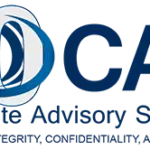Before discussing the impact of the CARES Act on the Collections industry, it is worth noting that in recent conversations with the Consumer Financial Protection Bureau, they indicated it is likely Director Kraninger will wait to conclude the process of gathering comments on the Supplemental Proposed Rulemaking on Time-Barred Debt before issuing one comprehensive final rule on debt collection. We anticipate a final rule will not be released until September at the earliest, as the comments to the supplemental rule are not due until August 4, 2020 and the agency routinely waits at least 30 days prior to issuing a final rule.
The CARES Act was drafted, filed and passed by members of Congress to help offset economic damage caused by COVID-19. The Act was also developed to support workers and consumers affected by job loss and health concerns.
At first blush, this all seemed positive for US industry, including the collections industry. After all, the collections industry represents many small businesses across the country and is, itself, composed almost entirely of small businesses.
However, not long after the first legislation was passed, wish lists of additional policies were proposed. One, in particular, jumped out as being of concern to lawyers practicing creditors rights law. That policy would impose a blanket moratorium on debt collection during the current state of emergency and for 120 days thereafter. Additionally, in some versions of the drafted legislation a moratorium on debt collection would automatically apply to any future declared state of emergency as well.
As we have seen from the patchwork of State regulations placing “stay at home” orders and restriction on commerce, the impact of the pandemic is not the same across the country. A “one-size fits all” regulation would not only be harmful, but it would not help the economy, small business, consumers, or the general credit eco-system. Removing options that allow attorneys to help “Main Street” businesses collect their receivables would only exacerbate problems caused by COVID-19.
The National Creditors Bar Association (NCBA), a trade association representing more than 500 creditors rights law firms, immediately went to work to highlight the safeguards our members already offer to consumers facing hardships.
- In March, NCBA asked all members to utilize their hardship policies, already in place, to assist consumers affected by COVID-19.
NCBA is also hard at work educating legislators and advocating for our industry.
- In addition to emails, virtual meetings and ad hoc conversations with Congressional offices and other leaders, we sent letters to the White House and Congressional leaders voicing our concerns with a blanket moratorium. We called on our members to also send letters voicing their concerns. Through this grassroots effort, more than 5,000 letters were sent to Congress.
NCBA also came out early to advocate for consumer protection regarding the exemption of CARES Act stimulus payments from any judicial garnishment or bank attachment. In addition to adopting a formal policy on this issue, we sent a letter to the Treasury Department to establish regulations to preclude these payments from garnishment.
Members of the US Senate agreed with NCBA’s position on exempting stimulus funds from garnishment and on May 21, 2020 filed a bi-partisan bill (S.3841) that instructs the Treasury Department to code the stimulus payments as protected funds, much as they do with other forms of aid, such as Social Security.
NCBA’s work continues.
The U.S. House of Representatives recently passed the 1,800-page HEROES Act. This Act passed, primarily on party lines, and was seen by many congressional observers as a messaging bill. Unfortunately for our industry, this Bill still contains the worrisome debt collection moratorium language. However, it now adds to the proposal a credit facility to be made available to segments of the industry negatively affected by the moratorium. The credit facility is essentially a bailout program offered to those harmed by the moratorium on collections (think the Main Street creditors and small businesses). From everything we have seen, the Senate does not have an appetite for such a bill, and it has been decried by many as a “wish list” of policies, some of which were being advocated long before the pandemic became the driving force behind such legislation.
Since its inception in 1993, NCBA has been the leading voice advocating for attorneys practicing creditors rights law. We monitor, advocate and fight for our industry. We believe our members maintain consumer and lender confidence by providing a fair and transparent legal process. So often, industries allow others to define who they are. By utilizing members, clients, consultants, and building coalitions, NCBA is determined to continue to tell its own story. Our story is one of compliance, ethics, and professionalism. In the words of former CFPB Director Richard Cordray:
[we] recognize that debt collection is part of the proper functioning of consumer credit markets. If people owe money that they borrowed on their credit card, or because they took out a student loan or received service from their telephone company, they are obligated to pay the money back, and they should do so. Responsible debt collectors that do their work with care and treat consumers with respect are a natural and even an essential part of the financial marketplace. (January 12, 2017)
The National Creditors Bar Association represents over 500 law firms and 2500 attorneys practicing creditors’ rights law. NCBA law firm members employ over 40,000 support staff employees, vendors and independent contractors throughout the United States. For more information visit: www.creditorsbar.org.
Learn more about the CAS team here.

